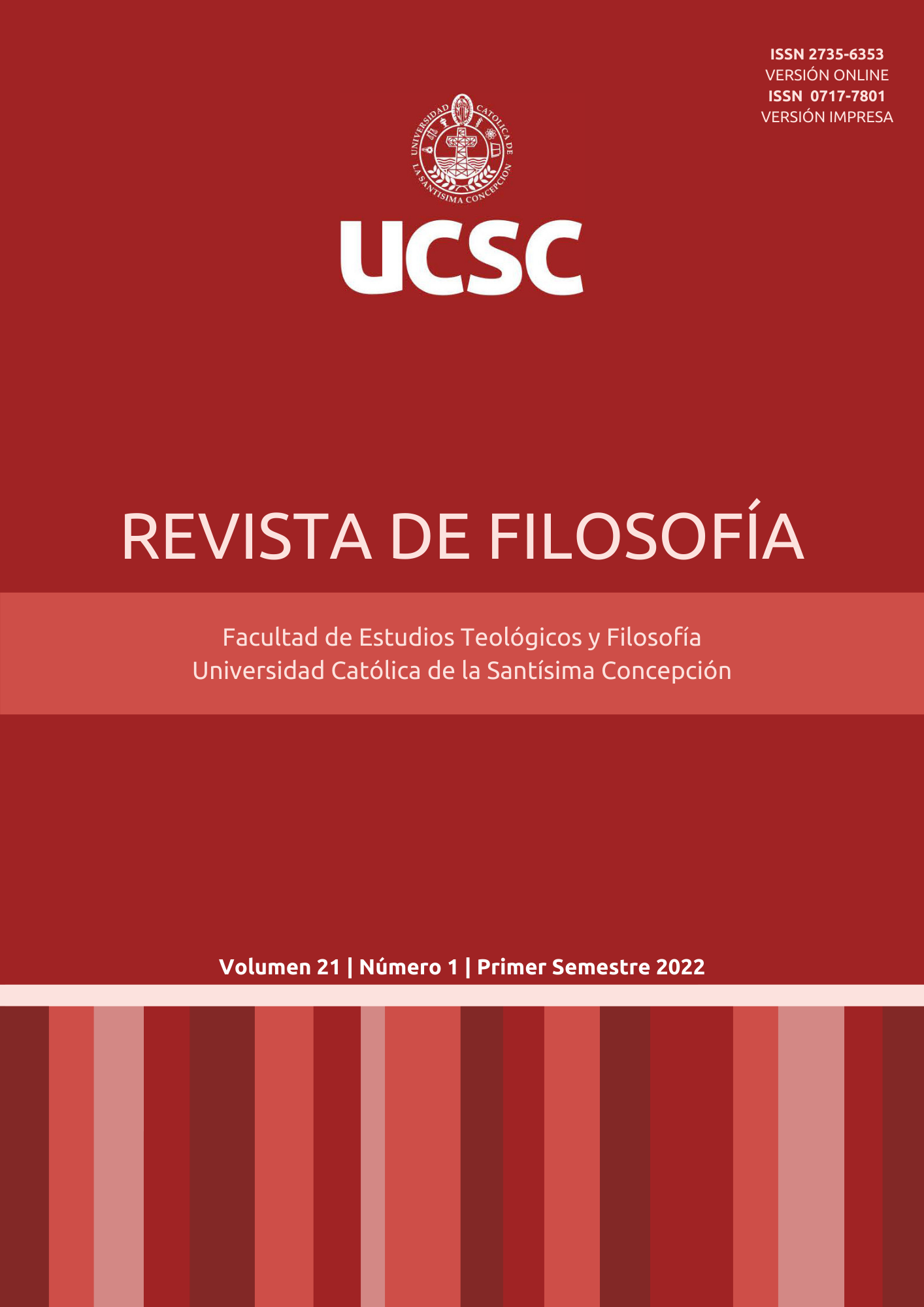The Apocalypse of Leviathan: Eschatology on the political project of Thomas Hobbes
Main Article Content
Abstract
The main objective of this presentation is to determine the role played by eschatology within the political thought of Thomas Hobbes. In order to determine this role, it is fundamental to give an account of the bibliographic framework used for this presentation. Moreover, there will be an analysis on the relationship of the concepts of "death of State," "history," and "contract," and Hobbes’s main consequences in the post-apocalyptic political landscape. Finally, there will be an interpretation of Hobbes's use of eschatology responding the following question: Is eschatology just a rhetorical device, or is it essential for the entire structure of its political system?
Downloads
Metrics
Article Details

This work is licensed under a Creative Commons Attribution-NonCommercial 4.0 International License.
The Revista de Filosofía UCSC is an open access journal and does not charge for publication. In addition, it regulates its Copyright and access policy according to the Creative Commons Attribution-NonCommercial 4.0 International Public License (CC BY-NC 4.0), therefore sharing (reproducing and distributing the material in any medium or format) and adaptation (modifying, transforming, and creating from the material) is allowed as long as proper credit is given and the citation is included with the corresponding data. Moreover, it is not allowed to use the material for commercial purposes.
References
Ball, B. W. (1975). Great Expectation, Eschatological thought in English Protestantism to 1660. E.J. Brill.
Borot, L. (2006). “History in Hobbes’s Thought”, Cambridge Companion to Hobbes, Tom Sorell edition. Cambridge University.
Capp, B. (1972), “The Millennium and Eschatology in England”, Past & Present 57, 156-162.
Capp, B. (2011), “Godly Rule and English Millenarianism”, The Intellectual Revolution of the Seventeenth Century, edited by Charles Webster, UK., Ed. Routledge.
Clark, A. (1898). Aubrey’s Brief Lives. The Clarendon.
Lametti, J. (2012), Historical Dictionary of Hobbes’s Philosophy. The Scarecrow Press.
Martinich, A.P. (1999), Hobbes, A Biography. Cambridge University.
McClure, C. (2011). Hell and Anxiety in Hobbes’s Leviathan, The Review of Politics, 73, 1-27.
Miller Lewis, J. (1976), Hobbes and the Blackloists: A Study in the Eschatology of the English Revolution, Dissertation, PhD Thesis on Philosophy, Harvard University, 1976. Harvard University Offsite Storage. http://id.lib.harvard.edu/alma/990038747600203941/catalog
Hobbes, T. (1994). The Correspondence. Clarendon.
Hobbes, T. (2012) Leviathan. Clarendon.
Hobbes, T. (2017), The Elements of Law Natural and Politic. Cambridge.
Pocock, J.G.A. (1989), Politics, Language, and Time: Essays on Political Thought and History. University of Chicago.
Schumann, K. (2000). Hobbes’s concept of history, Hobbes and History. Routledge.
Schwartz, J. (1985). “Hobbes & Two Kingdoms of God”, Polity 18 (1) (1985), 7-24.
Simendić, M. (2016). “Nature, Civility and Eschatology: Thomas Hobbes’s Progress in Three Acts”, FILOZOFIJA I DRUŠTVO XXVII (4) (2016): 894-915.
Springborg, P. (1975), “Leviathan and the Problem of Ecclesiastical Authority”, Political Theory 3. 289-303.
Tuck, R. (1992). The Civil Religion of Thomas Hobbes, Political Discourse in Early Modern Britain, Cambridge University Press, pp. 120-138.




